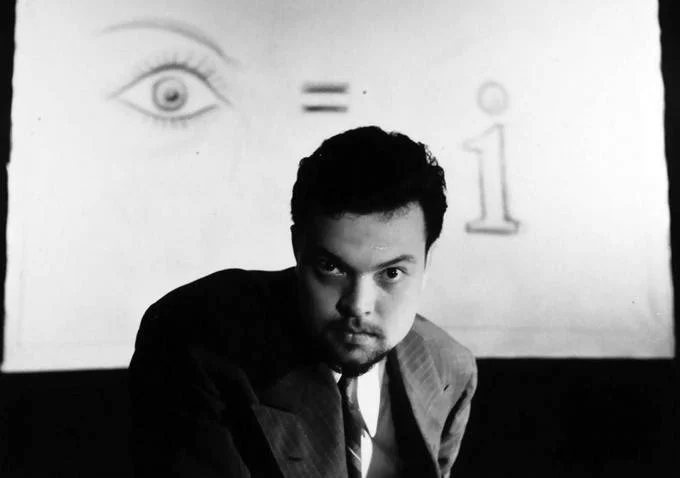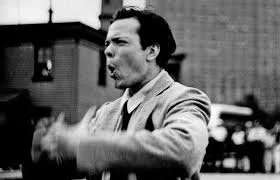The Once and Future Orson Welles is available now! It’s the culmination of decades of work. I was fifteen when I started cobbling together a screenplay version of what would eventually become Orson Welles of Mars.
It has been ten years since I was trying to figure out what my next novel would be, and imagined not just an alternate version of what happened during The War of the Worlds incident, but an entire saga in which the biography of the man who made Citizen Kane becomes skewed via a pulpy prism. He didn’t merely conquer the martians. He faced an ancient evil at the height of the red scare. Finally, he would ensure his legacy at the hilt of King Arthur’s sword. Throw in an ongoing feud with Charlie Chaplin* for good measure.
But if you’ve never seen the films of Welles (or for that matter, the other figures who appear in the series), you’re missing out. The image of Welles in the folklore of cinema is that he was unable to ever wield his filmmaking gifts after the controversy over Kane. For my money, there are few filmmakers who shoot and edit with such a consistently unpredictable energy, even after his budgets were completely obliterated. His Macbeth (1948) is truly great—especially for it’s micro budget—and F for Fake (1973) never fails to entertain or fascinate, and it is essentially made out of scraps.
Citizen Kane (1941)
The Magnificent Ambersons (1942)
The Stranger (1946)
The Lady from Shanghai (1947)
Macbeth (1948)
Othello (1951)
Mr. Arkadin (AKA Confidental Report) (1955)
Touch of Evil (1958)
The Trial (1962)
Chimes at Midnight (1965)
The Immortal Story (1968)
F for Fake (1973)
Filming Othello (1978)
Don Quixote (1992)**
The Other Side of the Wind (2018)**
As much as his films continue to fascinate, Welles himself is a constant subject, both of narrative and documentary films. Who played him best? That would have to be Vincent D’Onofrio (dubbed over by the great Maurice LaMarche) as the “Wolfman Jack” of Ed Wood (1994) and the worst is Danny Huston trying to mumble his way through the nominally clever, but ultimately bland Fade to Black (2006).
Bonus list:
Ed Wood (1994)
The Battle Over Citizen Kane (1996)
RKO 281 (1999)
Fade to Black (2006)
Me and Orson Welles (2008)
They’ll Love Me When I’m Dead (2018)
Mank (2020)
Speaking of Wolfman Jack and Welles’ long beef with the Little Tramp, Welles’ fingerprints are all over films by other directors as well. He embraced (more out of necessity than anything else) the independent streak that came to dominate Hollywood in the late 60s and early 70s. These are just a few of the films where Welles legacy can be felt (and sometimes disputed). You may notice a few names who play a large role in the plot of The Once and Future Orson Welles. Get it now from Amazon!
Bonus Bonus list:
The Last Picture Show (1971)
Monsieur Verdoux (1947)
Bonnie and Clyde (1967)
THX 1138 (1971)
American Graffiti (1973)
Easy Rider (1969)
And so, that is probably my final word on Mr. Welles. It’s a strange moment for me, to be sure. An end of an era. My memory of what life was like before the era is hazy at best. Check back in with the website to see what’s next. More podcasts. More books, and I think I may even try to write one that isn’t about Orson Welles. We’ll see how that goes.
*Both referred to each other with barely-contained exasperation in both Chaplin’s My Autobiography and Welles’ conversations with Peter Bogdanovich in This is Orson Welles.
**Released posthumously.


